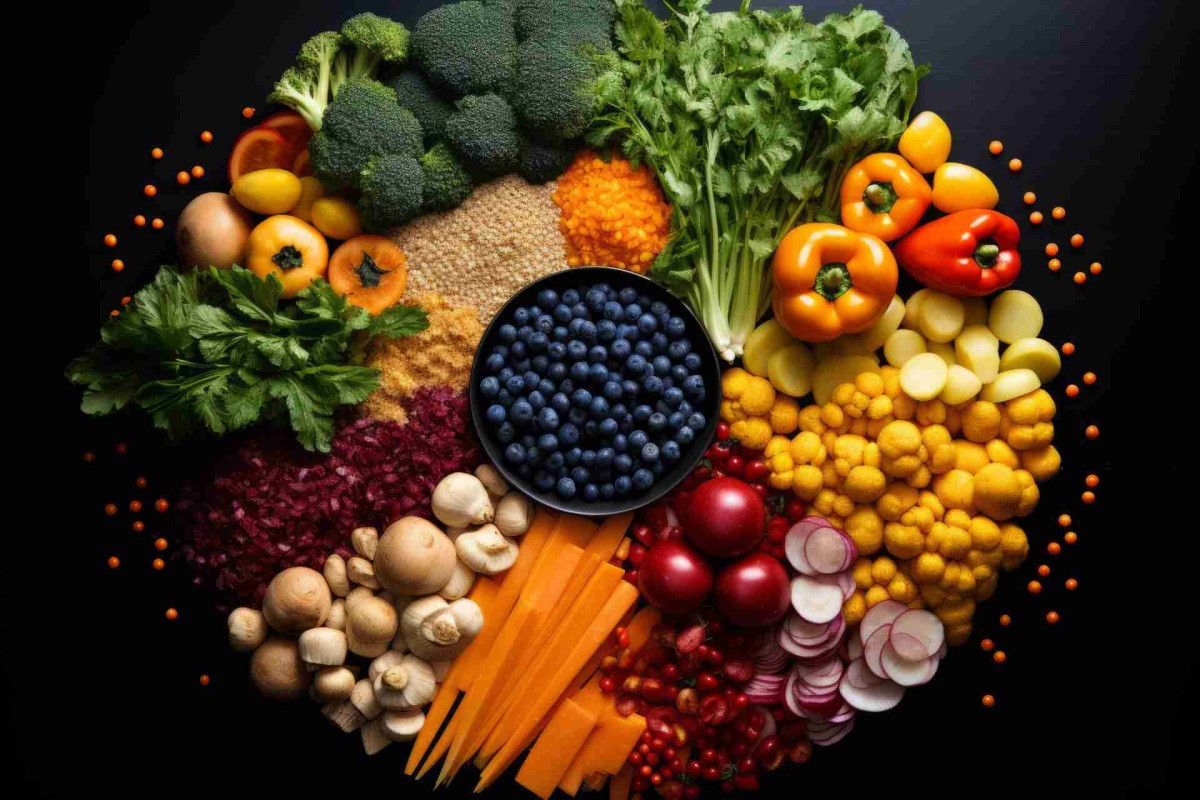Why diet matters for longevity
As we age, the food choices we make can have a profound effect on our health, energy, and quality of life. While exercise and social connection are equally important aspects of living well at any age, a healthy diet can give you the energy to get fit and socialise. A well-balanced, nutrient-dense diet is likely to reduce the risk of chronic illness, improve mobility, sharpen the mind, and even extend life expectancy. Adding longevity-boosting foods to your plate will help you get more out of life.
Below are some of the best foods to incorporate into your daily meals to support vitality and wellbeing.
Leafy green vegetables
We’ve long understood the importance of eating our greens and the benefits speak for themselves. Spinach, kale, silverbeet, and broccoli are rich in vitamins A, C, E, and K, along with fibre and calcium. These nutrients support bone health, eye health, and the immune system. The antioxidants found in leafy greens also protect against age-related diseases such as heart disease and dementia. Set yourself a daily challenge to fill half your plate with colourful vegetables at lunch and dinner.
Berries for brain and heart health
While fruit is generally good for you, berries are packed with the best health-giving properties. In the cooler months you can use frozen berries to make delicious smoothies or bake berries into low sugar treats. Blueberries, strawberries, and blackberries are packed with antioxidants, particularly anthocyanins, which help combat inflammation and oxidative stress. Research suggests that regular berry consumption may slow cognitive decline and improve heart health. Berries are delicious on porridge, in museli, or as a healthy snack alternative to sweets.
Whole grains for energy and digestive health
Oats, quinoa, brown rice, and wholegrain bread are excellent sources of fibre, B vitamins, and minerals. Fibre supports digestion and helps maintain healthy cholesterol levels, while complex carbohydrates provide sustained energy throughout the day. Wholegrains are known to regulate the bowel due to the high fibre content while reducing the risk of conditions like colon cancer. Whole grains can be especially valuable in maintaining a steady blood sugar balance.
Fatty fish for omega-3s
Salmon, sardines, and mackerel are rich in omega-3 fatty acids, which are vital for brain function, reducing inflammation, and supporting heart health. Regular consumption of fatty fish has been linked to lower risks of alzheimer’s disease and stroke. For those who prefer not to eat fish, chia seeds, flaxseeds, and walnuts offer plant-based alternatives.
Nuts and seeds for healthy fats
Almonds, walnuts, sunflower seeds, and pumpkin seeds provide heart-healthy fats, protein, and key minerals such as magnesium and zinc. These foods are also excellent for maintaining joint health and reducing inflammation. A small handful of mixed nuts makes an ideal daily snack for energy and brain health.
Legumes for protein and longevity
Beans, lentils, and chickpeas are a cornerstone of many long-lived cultures around the world. High in plant protein, fibre, and essential minerals, legumes promote satiety, balance blood sugar, and reduce cholesterol levels. They’re also cost-effective and versatile, making them a perfect addition to soups, stews, and salads.
Olive oil for heart health
Extra-virgin olive oil, a staple of the Mediterranean diet, has been strongly linked to longevity. Rich in monounsaturated fats and antioxidants, olive oil supports cardiovascular health and reduces inflammation. Swap butter or margarine for olive oil when cooking or drizzle it over vegetables and salads.
Fermented foods for gut health
Yoghurt, kefir, sauerkraut, and miso are excellent sources of probiotics, which promote a healthy gut microbiome. A balanced gut supports digestion, immunity, and even mood regulation. Seniors who include fermented foods regularly may notice improvements in energy and overall wellbeing.
Green tea for longevity
Green tea is rich in catechins, powerful antioxidants that protect cells and reduce the risk of chronic disease. Studies suggest that daily green tea drinkers may live longer and enjoy better heart and brain health. Replace one cup of coffee with green tea each day to benefit from its calming and energising effects.
Good daily habits
Incorporate a wide range of colourful fruits and vegetables for maximum nutrient diversity.
Stay hydrated with water, herbal teas, and hydrating foods like cucumbers to help maintain energy and digestion.
Prioritise a balanced, consistent approach to eating by consuming mostly whole, minimally processed foods. Replace restrictive low-calorie diets with healthy choices for energy and vitality to live a longer, healthier life.




